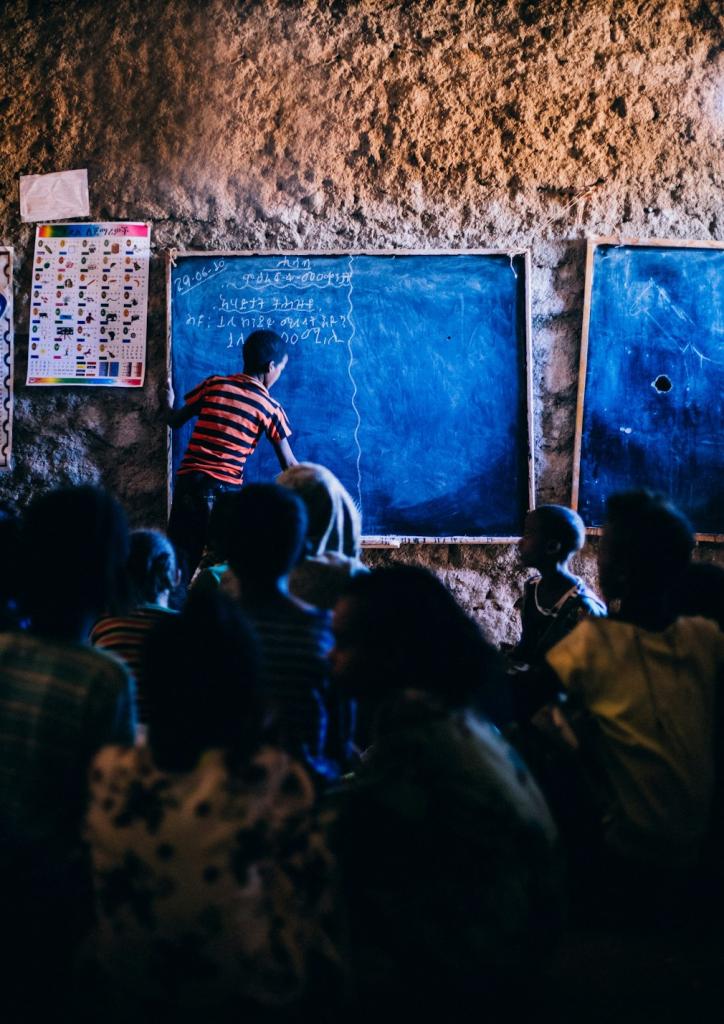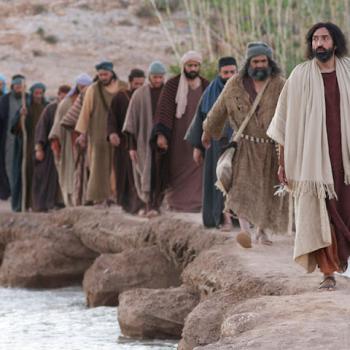The beginning
The Book of Proverbs declares, Train up a child in the way he should go: And when he is old, he will not depart from it. To understand this Biblical injunction, it is important to differentiate between schooling, education, learning, and training.
We often mix all these up, mistaking one for the other, and in general, end up messing it all up. An clear and concise understanding what these mean will go a long way in helping us raise our children, while growing ourselves too!
One reason for this confusion is that we’re not sure of our goals and outcomes. We do not sit down and draft out what we want our children and ourselves to be. We have no clue as to what we and our children need to be or even want to be. The result is that we often fall back on the prevalent trend, or follow what others are doing. By default, we adopt what someone else is doing just because they seem to make it.
Let’s therefore now look at what each of these terms mean!

Dictionary Definition
Schooling specifically refers to the formal instruction and structured environment provided by educational institutions. We should not equate or confuse schooling with education, since schooling is trying to drill learning into people according to some plan, or making deposits of knowledge.
On the other hand, education refers to the process of acquiring knowledge, skills, values, and attitudes through various means, such as formal and informal learning, personal experiences, and self-study. It is actually a process of inviting truth and possibility, of encouraging and giving time to discovery. According to John Dewey, education is a social process, and it is a process of living, not a preparation for future living. Education should bring out or develop potential both in ourselves and in others.
Education is deliberate in that it seeks to build understanding and judgement, and enable action. Educators shouldn’t be like carpenters working on a piece of wood, but be gardeners providing the right atmosphere, creating the right environment for growth, and patiently nurturing and guiding a plant to full potential.
While schooling is a crucial component of education, it is not the all of education. Education is a lifelong process that goes beyond the confines of schooling. Most people in India equate schooling with education, and miss out on grasping the full impact of education. A sad scenario is that Indians tend to stop learning once out of structured institutions and into a job!
Learning is a broad and encompassing concept that includes both formal and informal knowledge acquisition. Learning is a lifelong journey of gaining insights, skills, and understanding from various sources, including books, experiences, mentors, and even failures.

Scriptural Interpretation
The biblical concept of education is to train children to live righteously, think clearly, develop talents and gifts, grow in knowledge so as to contribute to and serve the community. The goals of education in the Bible is to learn of God and His ways, learn to think rationally and wisely, and learn to be a contributor to the community. Scripturally, education is imparting training in how to live a life well-pleasing and acceptable to God, and lived out in service to the community.
In Ephesians 6:1-4 Apostle Paul instructs parents, especially fathers, to discipline and instruction them in the Lord. Message version asks them to: Take them by the hand and lead them in the way of the Master. The words used here for discipline is paideia (from which we get the word encyclopedia), and instruction means “to place in mind.” The focus and aim of upbringing in the home is to help the child grasp the ways of God, and comprehend His will for him or her.

Parenting Task
Stephen Clark further clarifies paideia as being teaching that helps change the way a person lives. It is not about just providing them with ideas and thoughts. Such teaching is authoritative, and is to guide them to put these ideas into practice, and is about forming people. In the context of parenting children, it is to molding them to be how God wants them to be. It is about discipling and mentoring them with much thought and care, as well as insight and foresight.
Parents have to consciously and consistently focus on training and teaching their children. They must fashion and shape them to be mature subjects of His Kingdom, and law-abiding citizens of this world. Parents must impart the fear of God, which is not trembling before Him, but learning to live a life that is pleasing to Him, every moment of every day. They must use discipline and correction to drive out the foolishness that’s bound in the heart of a child. Through the fear of God, they must impart wisdom, (the opposite of foolishness), and ensure their chikdren become mature adults.
Parents must nurture their children to love God and honor Him in their lives by being examples of His character, and His nature. They must teach and strengthen them to exhibit godly nature and culture. Since God’s Word confronts the world with a clear, counterculture message, parents must train children to have a backbone to say no to the pressures of this world.

Real educational activity
Current culture of society is based on the philosophy of the day and is focused on self-glorification, self-gratification, and self-realization. Godly and true Christian culture is based on the philosophy of Christ, which is to put others first. It is to live for the glory of God, submitting to His moral directives, and living according to His values in the power of the Holy Spirit. To impart such a training is neither easy nor can it happen on its own. We cannot achieve this if we’re passive or acquiescent, but by being radical and different.
Training of children with such high ideals and lofty objectives cannot be random nor optional. It has to be imperious and imperative, as well as deliberate and decisive. We have to be intentional in the way we raise our children, in how we train them, and in what we teach them.
Deuteronomy 11 commands parents to lay up up His words in their hearts and teach them to their kids. We’re to discuss and debate with them about the principles of God at every possible instance. We need to sow and saturate their minds with His Word, catching every moment and every opportunity to do so. We must allow them to ask us hard and difficult questions about life when we sit down, when we walk with them, when we go to bed and when we rise up.

Focus needed today
For this type of intentional parenting, we need to devise goals, fix timelines, monitor progress, and set standards for our children. We need to have proper thought, careful planning, and strategic investment in to biblically training our children.
Most parents these days do not know how to raise children to be godly nor be productive citizens of this world. In the West and other affluent countries, there is much lack in teaching children to fear God and live by His principles, even in Christian families. Many are better at raising plants, crafting gardens, grooming pets, building structures, creating programs etc, than grooming and growing children. In the East, especially in developing nations, the driving force is about giving children a secular or normal education to live well in the world. Too much attention is given to acquiring a university education since it will lead to financial security and freedom.
Parents these days are also more interested in grooming their children to become superstars or super achievers in some field or other. They concentrate on training them in sports, arts, music, dance, media, beauty pageants, etc. Its not that these are wrong in themselves but when it is done in lieu of or at the cost of spiritual and moral training, it’s a loss.

Training and teaching nuances
Training and nurturing children in the Lord is neglected, and often sidelined due to lack of knowledge and wisdom. Prioritizing instructing our kids in the Lord means we cannot afford to be haphazard or uninformed in the way we raise them. We live in times, seasons, and societies where the name of the Lord is often ridiculed, and strict adherence to moral standards undermined. Parents have an uphill task in raising children with spirituality, morality, and humanity.
Therefore, it is crucial and critical for parents and child caregivers to be focused and calculated in the use of time we have with our children. We just have 21 years to impact and influence our children in, and for the Lord. Therefore, each and every parent and family need to formulate a strategy, design a curriculum, and frame a process to foster proper godly learning and training. We must invent creative ways and means to communicate the principles in the Word of God to the little ones. Each of these programs mist be tailored to fit each child’s capacity and comprehension, at each stage and every season of growth.
We must be quick to grab hold of whatever opportunities we have to inculcate fear of the Lord in them. It is important to help them rightly interpret the Word of God, and develop the acumen to live it out amidst the constraints of the day.

The end of the matter
As godly parents, we ought to remember that our primary task as followers of Christ is to transfer our faith to the next generation. We need to teach and train our children to follow Him the way we do. This task must so consume us that all we do for our children must have this as the underlying focus. Without such fixation, we can never nurture our children in the Lord, nor raise them to be citizens of His Kingdom.
Training in the Lord is the primary and foremost education we must impart to out children today. Enrolling them in Sunday school, making them attend meetings, or sending them to camps are all good steps to take. Through these, however, we’re only schooling our children, and not really training or even educating them. To educate our children in matters of faith, and train them to be His disciples, we need to expend much more time, energy, and effort than placing them in normal schools for regular education.
Real learning and proper education in all aspects of godly living means to help our children learn to make wise choices and decisions based on the principles of His Kingdom. Just as a plant is cultivated and nourished to bear fruit, so also we need to coax and cajole our children to walk in the ways of God. We have to form and mold them to be responsible citizens of His Kingdom reflecting His nature, and living for to glorify Him alone in all that they do.
May God give us great grace, strength, and wisdom to train our children in the way they should go, and not depart from it, ever!













